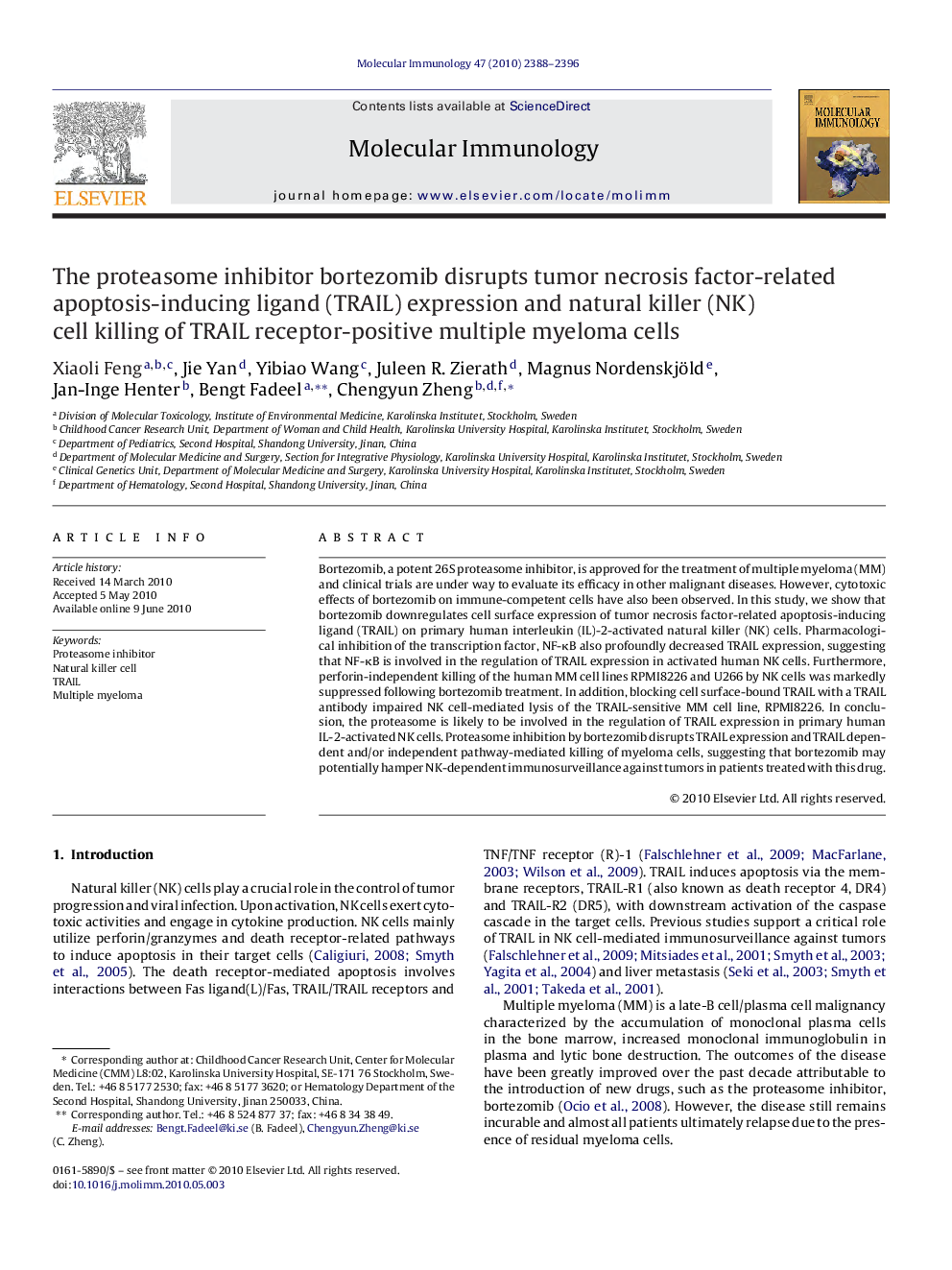| Article ID | Journal | Published Year | Pages | File Type |
|---|---|---|---|---|
| 5917867 | Molecular Immunology | 2010 | 9 Pages |
Abstract
Bortezomib, a potent 26S proteasome inhibitor, is approved for the treatment of multiple myeloma (MM) and clinical trials are under way to evaluate its efficacy in other malignant diseases. However, cytotoxic effects of bortezomib on immune-competent cells have also been observed. In this study, we show that bortezomib downregulates cell surface expression of tumor necrosis factor-related apoptosis-inducing ligand (TRAIL) on primary human interleukin (IL)-2-activated natural killer (NK) cells. Pharmacological inhibition of the transcription factor, NF-κB also profoundly decreased TRAIL expression, suggesting that NF-κB is involved in the regulation of TRAIL expression in activated human NK cells. Furthermore, perforin-independent killing of the human MM cell lines RPMI8226 and U266 by NK cells was markedly suppressed following bortezomib treatment. In addition, blocking cell surface-bound TRAIL with a TRAIL antibody impaired NK cell-mediated lysis of the TRAIL-sensitive MM cell line, RPMI8226. In conclusion, the proteasome is likely to be involved in the regulation of TRAIL expression in primary human IL-2-activated NK cells. Proteasome inhibition by bortezomib disrupts TRAIL expression and TRAIL dependent and/or independent pathway-mediated killing of myeloma cells, suggesting that bortezomib may potentially hamper NK-dependent immunosurveillance against tumors in patients treated with this drug.
Related Topics
Life Sciences
Biochemistry, Genetics and Molecular Biology
Molecular Biology
Authors
Xiaoli Feng, Jie Yan, Yibiao Wang, Juleen R. Zierath, Magnus Nordenskjöld, Jan-Inge Henter, Bengt Fadeel, Chengyun Zheng,
